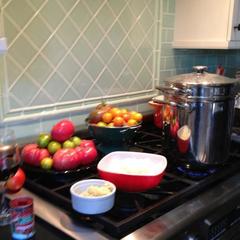-
Welcome to the eG Forums, a service of the eGullet Society for Culinary Arts & Letters. The Society is a 501(c)3 not-for-profit organization dedicated to the advancement of the culinary arts. These advertising-free forums are provided free of charge through donations from Society members. Anyone may read the forums, but to post you must create a free account.
How to Give a Dinner Party
-
Similar Content
-
- 7 replies
- 1,619 views
-
- 86 replies
- 4,975 views
-
- 86 replies
- 4,975 views
-
- 2,619 replies
- 413,249 views
-
- 834 replies
- 233,431 views
-
-
Recently Browsing 0 members
- No registered users viewing this page.





Recommended Posts